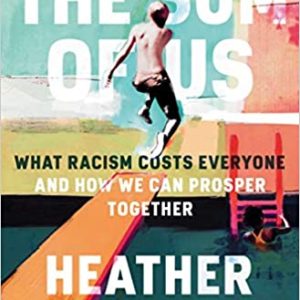A Revolution in the Fine Print
Today the House will pass the Biden Covid Relief Plan (American Rescue Plan), clearing the way for the measure to be signed by the President. Pretty remarkable that they had gotten this done, and done so quickly, even meeting the March 14 deadline of expiration for current unemployment benefits.
Not quite hidden in the legislation is something quite remarkable. It establishes a guaranteed income for families with children. Direct cash payments to parents based on the number and ages of their children, with a cut off for higher income families. Theses payments are without strings attached, in contrast to the work requirement that came with “the end of welfare as we know it” in the 90’s.
Many have touted the ARP by saying it will “cut child poverty in half,” but less often have they noted just how this is being done, via the establishment of a guaranteed income for families with children. For a more detailed exploration of this policy and the precedent it sets check out this edition of The Daily from the New York Times.
It seems that we are finally doing something about the vast gap between the haves and have-nots in the U.S. And we are targeting children’s welfare, which makes all kinds of sense. Republican Mitt Romney proposed a similar plan with actually larger benefits.
Most Western democracies, including Canada, Australia and the Scandinavian countries have such a policy in place and have had for many years. But for the U.S. it represents a real philosophical departure, one that will elicit the conservative charge of “socialism.”
It also represents a challenge to the meritocracy, which I have spoken of in connection to Michael Sandel’s fine book, The Tyranny of Merit.
The meritocratic worldview argues that those who are wealthy deserve it — it’s entirely attributable to their smarts and hard work. And conversely, those stuck in poverty, deserve that. Here’s where the pandemic comes in. No one can argue that anyone “deserved” the pandemic. While it didn’t hit everyone equally, its impoverishing effects were not brought on by its victims.
Another factor that has played into this “revolution” is the movement for racial justice, particularly in the last year. A disproportionate number of people of color will be helped by the income benefit for families with children. It may be that we have finally re-framed “the race problem” as not simply inter-personal, that is, one of individual prejudice or acts of bigotry, but as a systemic problem that has relegated many African-Americans, in particular, to never getting ahead financially.
 Related to this last theme, I am reading the new book The Sum of Us: What Racism Costs Everyone and How We Can Prosper Together by Heather McGhee.
Related to this last theme, I am reading the new book The Sum of Us: What Racism Costs Everyone and How We Can Prosper Together by Heather McGhee.
An illustration and metaphor for the case McGhee is making is the community swimming pool. For many communities such a pool was a source of pride and community — but only for white residents. When the Civil Rights Movement forced municipal authorities to open the pools to people of all races, the response from many towns was to close the pool and cement it over. A definite “cutting off your nose to spite your face,” and a vivid illustration of how racism costs everyone.
McGhee’s argument reminds me of those who say that the freedom of women is the key to countries in the Middle East becoming stable and prosperous. Cutting women out actually has a huge cost to everyone there. So, here, the “zero-sum” assumption of many whites, i.e. benefits extended to people of color means less for us, is not only wrong, but — well — dumb. Repeat “nose/ face” thing.
To return to the ARP’s guaranteed family income benefit, the hitch is that with the ARP it is legislated for one year. Will it become the new norm? Probably that depends a lot on the 2022 elections and whether Democrats can avoid the usual “shellacking” (Obama’s term for the 2010 losses).
But for now I’d say this qualifies as “good news.” Actually, remarkable news. We’ve perhaps become accustomed in the recent years of trumpery and political gridlock to the idea that “all news is bad news.” But actually there’s quite a bit of good news happening at the moment. Take heart!
![Anthony B. Robinson [logo]](https://www.anthonybrobinson.com/wp-content/themes/anthonybrobinson/images/logo.png)
![Anthony B. Robinson [logo]](https://www.anthonybrobinson.com/wp-content/themes/anthonybrobinson/images/logo-print.png)